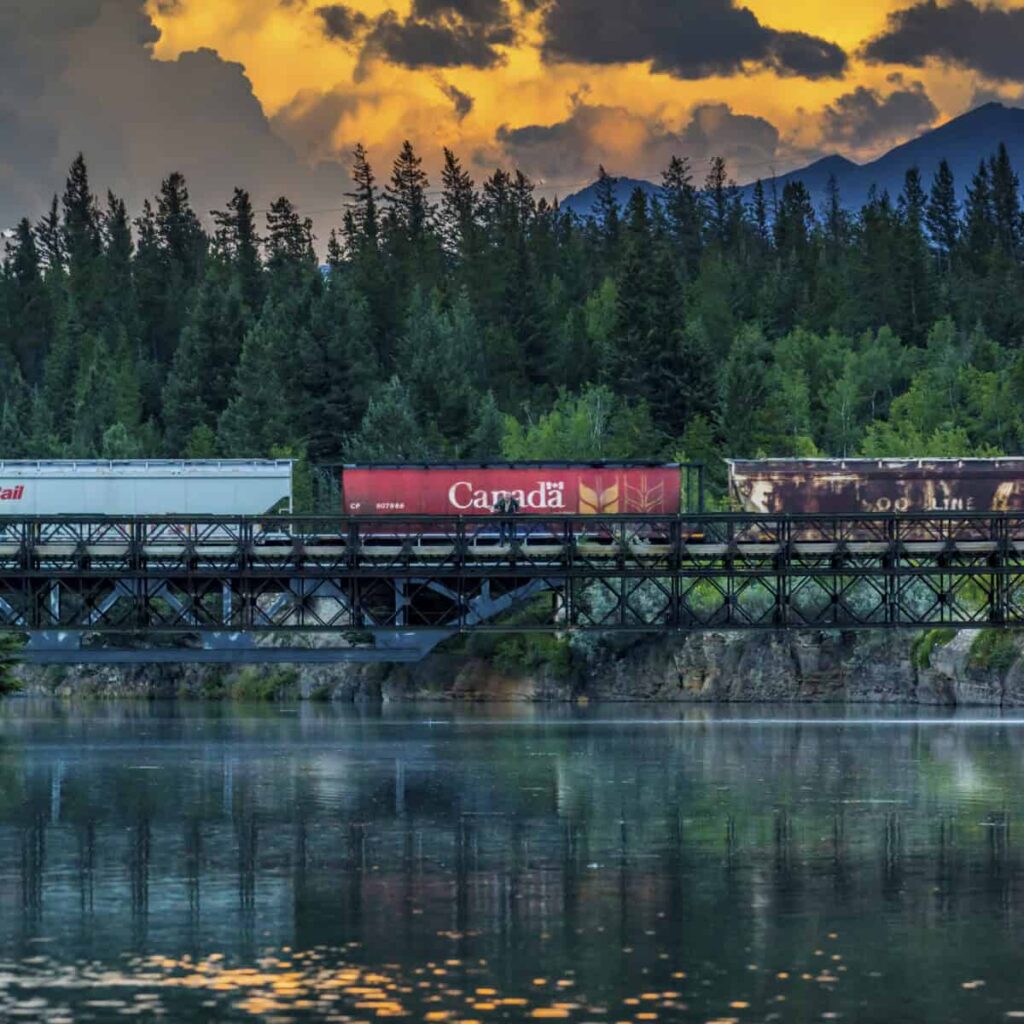Everyone watching Trump’s tariff threats is focused on energy, but personally, my eye is on railways.
Canada has a developed duopoly in this space with Canadian National Railway Company (TSX:CNR) and Canadian Pacific Kansas City Limited (TSX:CP).
Both took a beating last year over strike risks and now they’re getting hit again by tariff fears.
If I had to choose just one—knowing that my usual recommendation is to own both and sit on them—here’s my take.
Why railway investors need to understand tariffs
A broad 25% U.S. tariff on Canadian goods would make anything exported to the U.S. more expensive. In response, Canada would likely impose counter-tariffs, making American goods pricier for Canadian buyers.
That kind of back-and-forth slows down trade, raises costs for businesses, and eventually trickles down to consumers through higher prices and weaker demand.
At the centre of this economic chain reaction is transportation—and while people often think of trucks, it’s railways that keep North American trade moving.
Both CNR and CP move key exports like grain, lumber, autos, and energy products into the U.S. while also bringing imports back into Canada. If tariffs are imposed, fewer goods will cross the border. That means fewer railcars in motion, lower shipping volumes, and ultimately, lower revenue for both railway companies.
Railways operate on fixed costs, meaning they make the most money when their networks are running at full capacity. A drop in volume squeezes margins since they still have to maintain tracks, pay workers, and keep locomotives running, even with fewer goods moving.
That’s why trade wars hit them hard—fewer shipments mean lower efficiency and lower efficiency means weaker profits, which means depressed valuations.
Focus on risk management by geography
For me, the pick is simple: if a tariff war is brewing, I’d rather be long CNR than CP.
It all comes down to geography. CNR primarily runs across Canada, with key connections into the U.S., but its core business is domestic. CP, however, stretches from Canada down through the U.S. and into Mexico after its acquisition of Kansas City Southern.
That means it’s exposed to three different trade entities—all of which could get pulled into a North American tariff war. That’s a level of risk you’re not being compensated for.
On valuation, CNR also looks more attractive. Its forward price-to-earnings ratio sits at 18.18, compared to CP’s 22.08. This means for every dollar of earnings, you’re paying 18.18 for CNR but a premium of 22.08 for CP.
Put those two factors together—less exposure to trade war risks and a cheaper valuation—and if I had to pick just one railway stock right now, I’d rather own CNR than CP.

